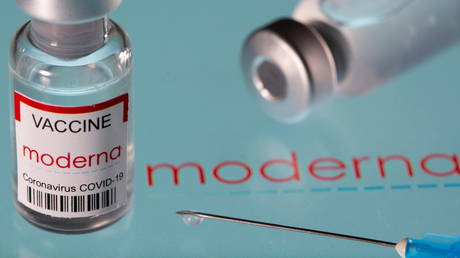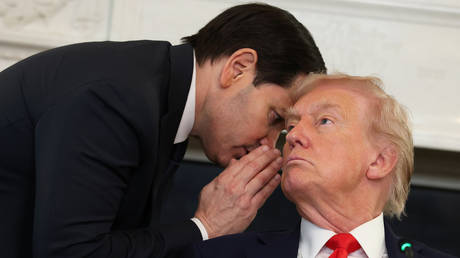
Modern has denied a report that it canceled delivery of hundreds of thousands of Covid-19 vaccine doses promised to Germany by the end of the month, in what was described as a serious setback for the country’s inoculation drive.
Government sources told Business Insider’s German edition that Moderna had canceled a large order placed by Berlin that was expected to arrive in the next few weeks. Health authorities were hoping to receive between 627,600 and 878,400 doses of the vaccine by May, the outlet said. In total, Germany has ordered 6.4 million doses from the US biotech company.
If true, the shortfall would almost certainly have an impact on Germany’s vaccine rollout. A government representative told Business Insider that there were “hardly any reserves” of the vaccine and that Moderna’s failure to deliver the doses could lead to many jab appointments being canceled.
However, Moderna denied that there were any issues and said April deliveries are on schedule. In a statement, the company said that it was “committed to meeting all quarterly contractual delivery agreements with the European Commission and individual Member States.”
The firm also clarified that while it does not “cancel” delivery shipments, it may at times “provide updates (on) delivery guidance” based on current production levels.
The German health ministry said Moderna had not contacted them about any changes to the delivery schedule.
Germany has struggled in the past few weeks to acquire enough jabs, after AstraZeneca failed to keep its delivery commitments to the country and other members of the EU, prompting Brussels to restrict exports of the vaccine.
The country has administered more than 13.8 million doses of Covid-19 vaccines, with 75% coming from Mainz-based BioNTech, which developed its vaccine in collaboration with Pfizer.
German Health Minister Jens Spahn announced last week that he hoped to ramp up his country’s vaccination efforts by allowing family practices to administer the jabs.
However, with shortages and new variants of the disease potentially making current vaccines less effective, Spahn has signaled that the government may begin to secure its own sources independently from the EU.
Last month, Bavarian Prime Minister Markus Soder urged the EU to prioritize its review of Covid-19 jabs awaiting approval, including Russia’s Sputnik V.
Potential safety concerns have also created hurdles for Germany’s inoculation program. The country temporarily suspended the use of AstraZeneca’s vaccine amid reports that it may be linked to blood clots. Although the suspension was lifted, medical authorities later advised that only people over the age of 60 should be given the jab.
Like this story? Share it with a friend!




